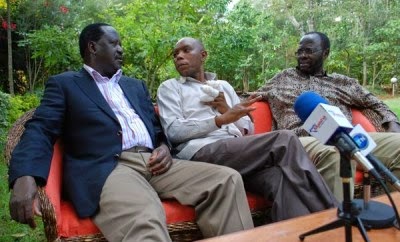We live at an age obsessed with youthfulness,
so a birthday ‘celebration’ can become a moment of trepidation if your age is
in the “no longer young” category. That was the case for me last Sunday when I
turned 42. Ageing may be a natural process for all of us, and may seem
self-defeating for anyone to emphasize youthfulness as the ultimate value, but
it’s the character of the age we live in.
Yet a birthday celebration provides
opportunity to reflect on the experiences of life and what these experiences
teach us going forward. I have experienced 3 main epochs in my adult life. Each
of these epochs has had its own highs and lows providing opportunity to learn
quite a lot. I think as people get older sharing these lessons of life should
become the focus of celebrating birth-days. It is this perspective that I share
my 3 epochal moments of my adult life.
Epoch
One:
This epoch started in the late 1990s when I
got my first job to work for a research and poverty reduction program. Our work
focused mainly on youth and women groups. This job I must say was quite
fulfilling; observing communities and groups progressively transform their
income status can be very gratifying. At a personal level however, I felt very
disconnected. There was this “thing – the private self” that I felt I had to
hide.
I had monologues in my head, often
wondering, what if the people got to know “the real me” what would happen, how
would they treat me? But not knowing better, I often brushed these mental
questions aside. Unfortunately these monologues only increased with time – it
was as if I was constantly having real eerie “can see us…” moment in a real
life ghost movie.
One time my boss sent me to represent him
at an inauguration of a large farming project our program had initiated with
the support of the German Government in Kisumu. Almost everyone from the
village was there, and since they expected my boss, there was this high-table
that I sat at. I recall very vividly, as the women were singing and dancing (as
is often the character of these kinds of events), I completely spaced-out. I
was wondering, if only they knew, who in the crowd I fancied, would they
continue singing? Would they continue treating like this celebrity from
NAIROBI?
Even though I was and remain committed to
poverty alleviation initiatives, my secret was fighting ever so strenuously to
break loose. It is as if I had secretly murdered someone and the investigators
were getting ever so close to the final clue.
Second
Epoch
As you can imagine, after sometime, life
just becomes too much. So with the advent of the broadened democratic space after
the 2002 general elections, together with some friends, we formed advocacy
groups that culminated with the formation of GALCK. I was lucky to become its founding
director. Yet this came with its own set of challenges.
We made some modest advocacy gains that
were quite gratifying both at a personal and professional level. But the
laser-sharp stigma that came with gay rights advocacy was particularly frightening.
Initially, I felt we had to soldier on, that people did not really understand
gay and lesbian people; that with time not only would they understand, they
would also be more welcoming and accepting. That if we made a very convincing
case, the government and general society would see the need to remove the punitive
laws and create a social order that respects equity and equality needs for all
of us.
Of course we now know that did not happen.
Instead, sharp and insulting words calculated
to emasculate and dehumanize were thrown at the Kenyan gay community and being
the community’s public representative, I received them on their behalf. With
time, as it always happens with these negative messages, I got to internalize
them, and the once high confidence levels plummeted to their lowest.
The young boy, who once revelled at public
speaking, and public adulation, could no longer speak even within closed door
meetings. The person who once drew energy from the crowd was no more – I became
like a rained-on old lion, who just wished to be left alone to mourn his shame
in private. In the end, the thing I miss the most during this second epoch of
my adult life is loss of self-confidence and the belief in self-worth.
Third
Epoch
The third epoch started last year – thanks
to a friend(s), who I have yet to thank sufficiently. After working for GALCK, there
were precious few organizations willing to hire a person with my advocacy
background. Being positioned as a gay-rights inhibited many from recognizing
any other skills I had, so you can imagine how much I appreciate the current
opportunity to “rehabilitate” into the mainstream society. As I now work in the
mainstream settings, I hope to provide evidence that current gay rights
activist, do have skills beneficial in the mainstream settings – I owe them
that.
Indeed in this third epoch, I hope to work
with others to deliver to the Kenyan and global societies bold and provocative social
and political messages that challenge the public’s conventional understanding
of the social order. That we cannot and should not be satisfied with a social
order that excludes and discriminates on account of ethnicity, race, religion,
sexual orientation, economic status, gender or any other such non-essential
human differentiator.
At a private/personal level this calls for
re-building my personal confidence and healing the wounds so deeply inflicted
by stigma. Yet on a social level, I remain committed to the comedy of the
commons. We can and should believe in a social order where all members of the
society, are provided opportunity to become better persons and to realize their
inherent potential to the fullest. I do this during the day-to-day professional
obligations, but also privately through the Kuria Foundation for Social
Enterprise – www.kuriafoundation.or.ke

